- Can we analyze the mental health of a person based on his twitter usage?
- If yes, what are the factors that determine this?
- To what extent COVID-19 affected people`s mental health?

AI-THON
Mental Health Of INDIA
During COVID-19
TEAM : THE ELITE
Associate Partners:
-
Chennai Mathematical Institute
Academia Partner
-
SPJIMR
Entrepreneurship Ecosystem Partner
-
Nasscom Community
Community Partner
Media Partners:
-
PRMoment
Media Partner
-
So You Wanna Be
In TV?, LondonCommunity Media Partner
-
Bloggers Alliance
Blogging Partner
Hiring Partners:
-
L&T Infotech
-
Lifevitae Singapore
-
EKO Informatics
Team : The Elite

Priyank Jha
PGP in Data Science @
Aegis
https://spotle.ai/Priyankjha1

Devleena Banerjee
Business Analytics @ IIM
Indore
https://spotle.ai/DevleenaBanerjee

Vidhya Subramaniam
Business
Analytics @ IIM Indore
https://spotle.ai/VidhyaSubramaniam

Chiranjeevi Karthik
Student @ Vardhaman
College
https://spotle.ai/Karthikchiranjeevi
Table of Contents
1. Introduction
Problem | Objective
2. Our Approach
Methodology | Solution
3. The Outcome
Results | Conclusion
4. Productionization
Limitations | Prototype
Problem Statement
Objective
- To come up with an effective methodology to analyze mental health based on tweets.
- To understand what determines the emotion conveyed in a tweet.
- To gather insights on how COVID-19 affected mental health based on tweets.
Methodology
Observations : Labelling tweets
Labelling tweets
using hashtags & emojis Failed
- % of tweets with emojis and hashtags which correspond to an emotion are less.
- Less correlation between emotions extracted from emojis,hashtags and polarity of tweets.
Labelling tweets
using lexicons Worked
- For every tweet we could extract whether a particular emotion is present in the tweet or not.
Our Strategy
dataset was used
- The unsupervised approach using emotion lexicons is relatively faster.
- We just need a single scan of the dataset to label each tweet with a particular emotion.
in single tweet
- Thanks to the emotion lexicons, we could label each tweet with multiple emotions.
Solution
Modelling
- We have built 6 binary classification models, where each model corresponds to a particular emotion.
- To build these models, Logistic regression was used over the vector embeddings extracted using the lexicon database.
Results
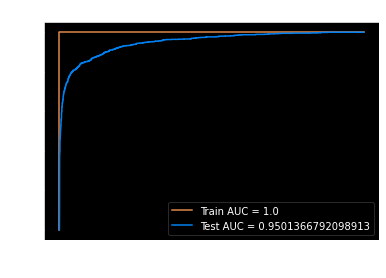
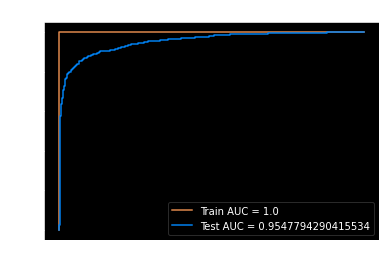
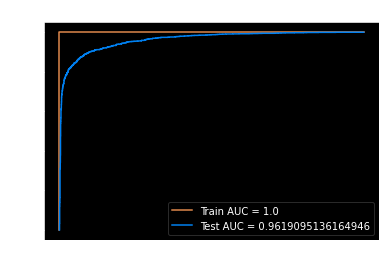
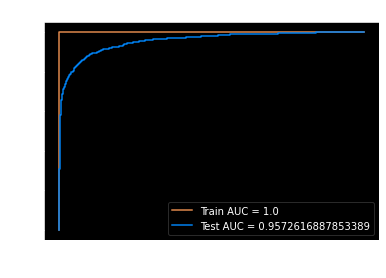
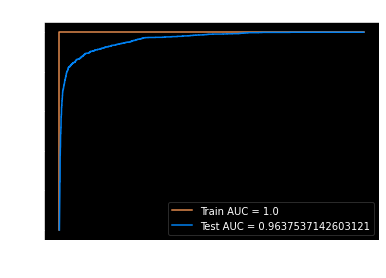
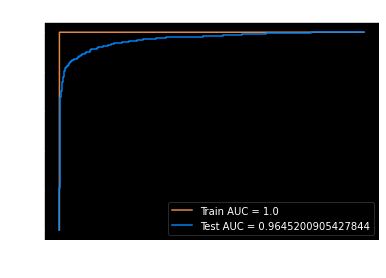
Effectiveness of Models
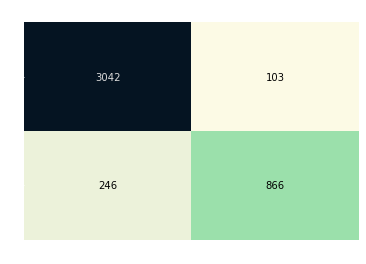
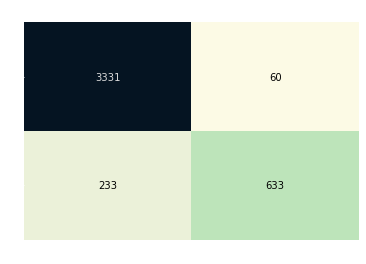
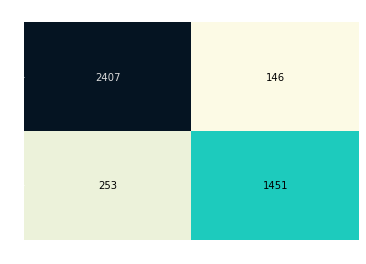
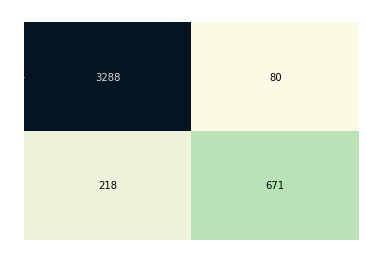
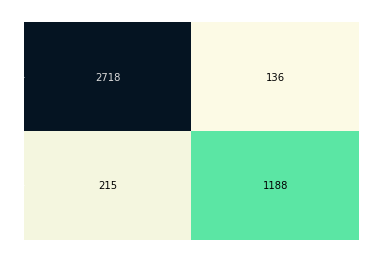
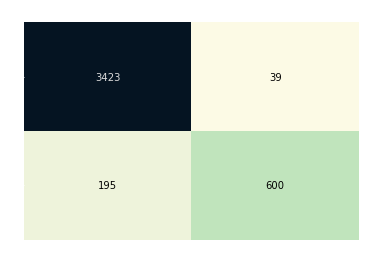
Conclusion
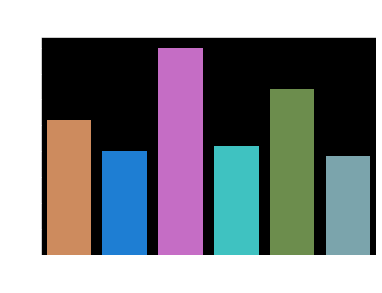
- Yes, we can determine the mental health of a person using twitter usage.
- The overall emotions in a tweet are decided by the emotions of individual words and not hashtags or emojis.
- COVID-19 has definitely taken a toll on people`s mental health as fear and sadness seem to be dominating their emotional state.
Limitations
- The predictions of our model are accurate only for tweets that use vocabulary similar to that of our training set.
- If none of the words in a tweet are part of our training set vocabulary, then it is implicitly labelled as neutral.
- To overcome the above limitations, we can train on a larger dataset.
Prototype
Complete Analysis
Time of the day the tweets were posted

Emojis wordcloud
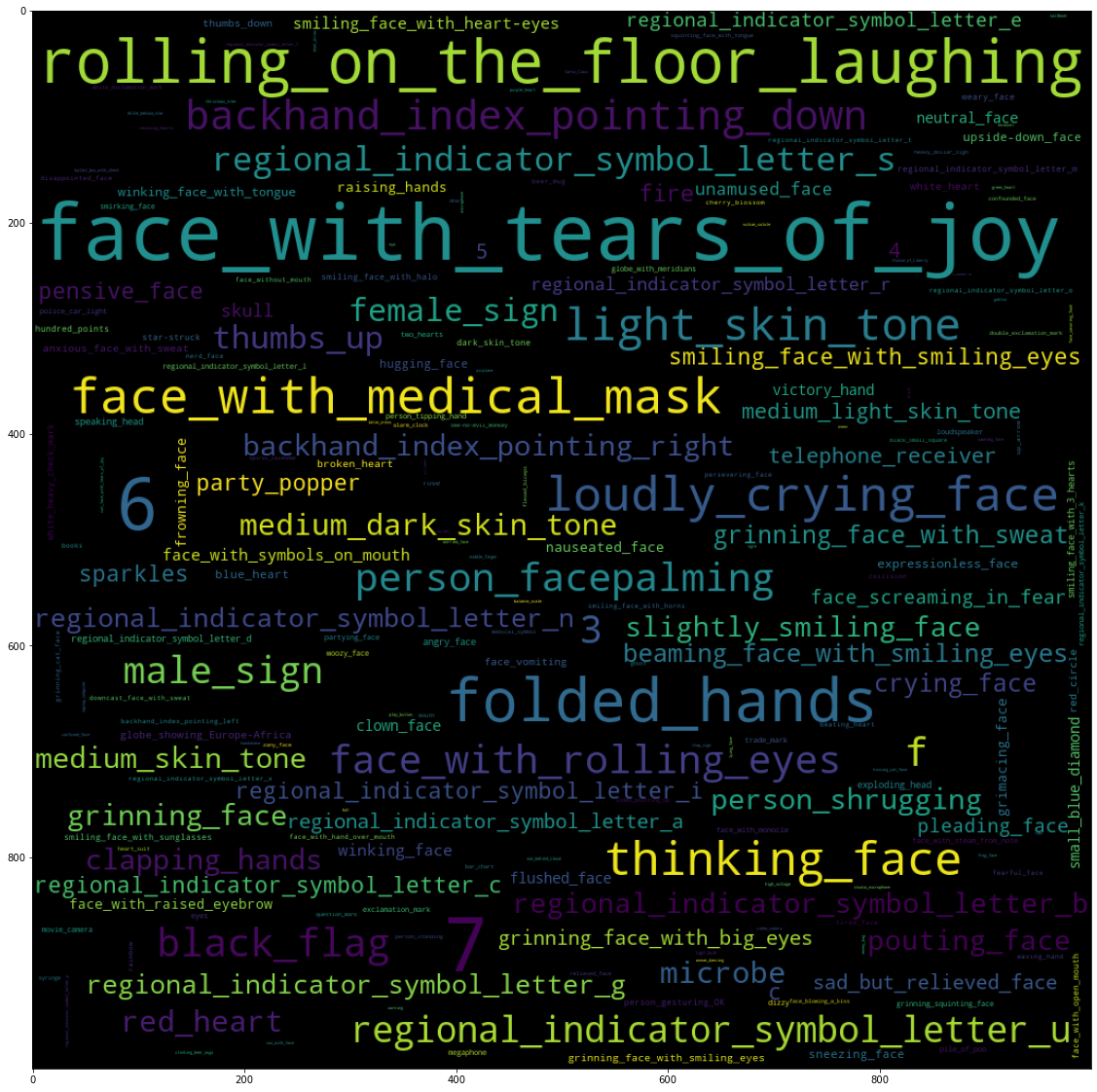
Hashtags wordcloud
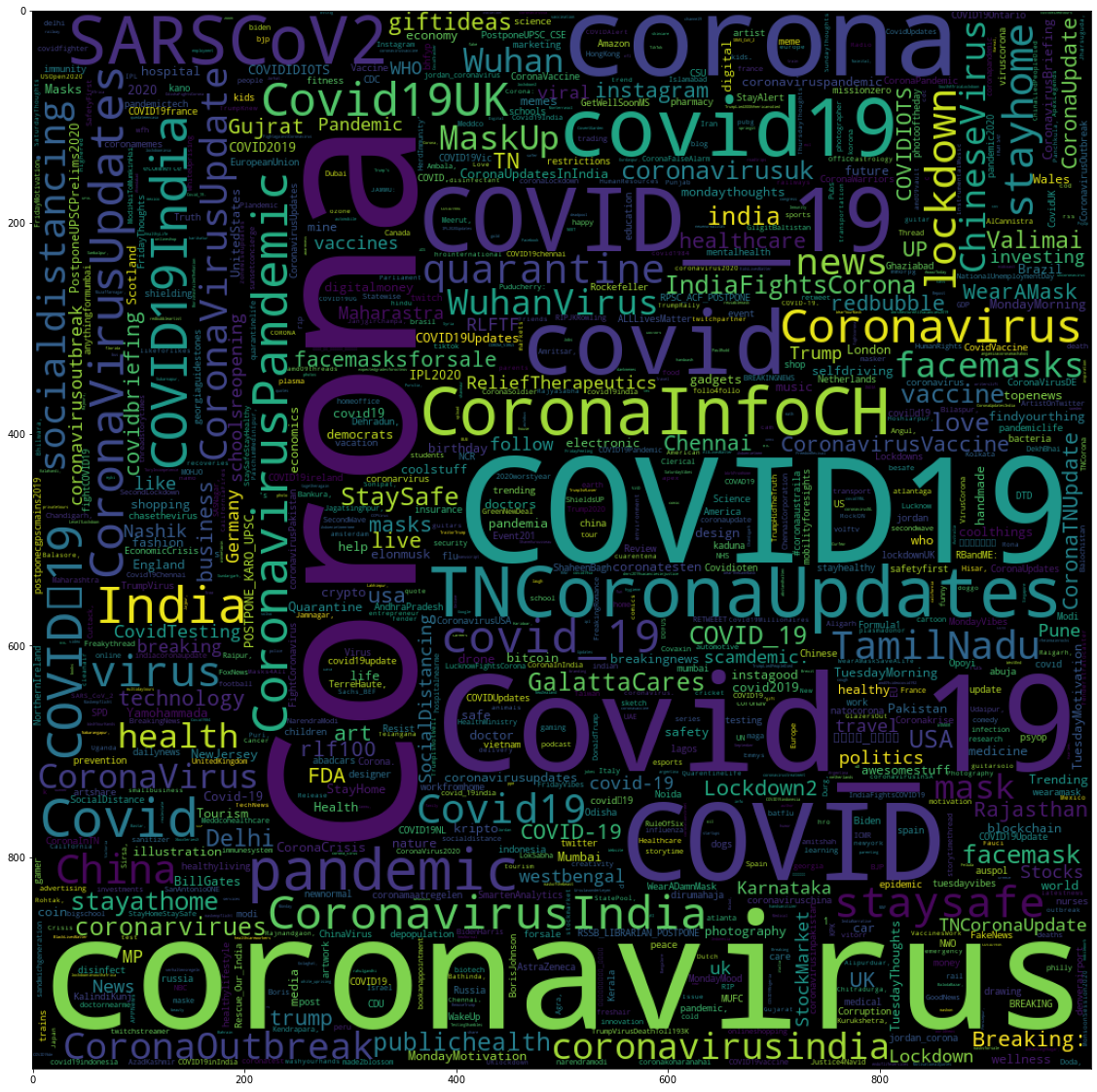
Most used Hashtags
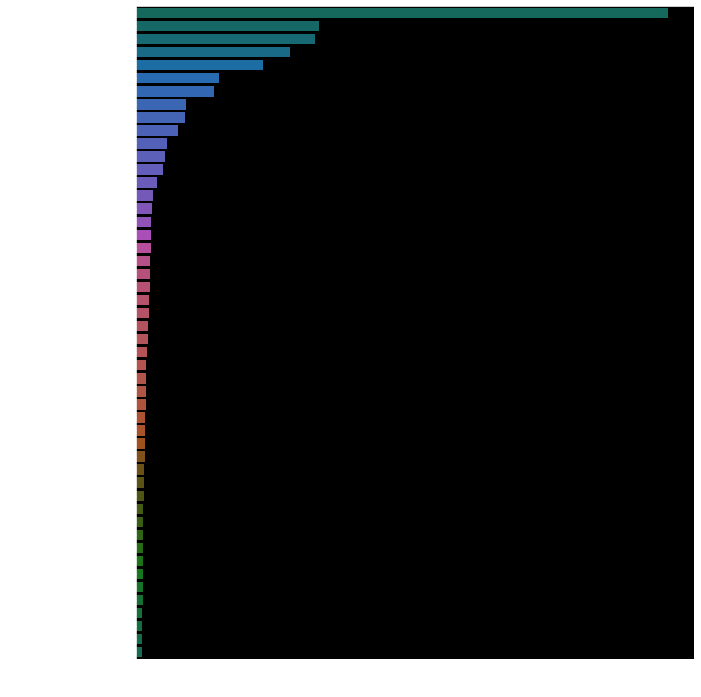
Number of tweets belonging to each emotion
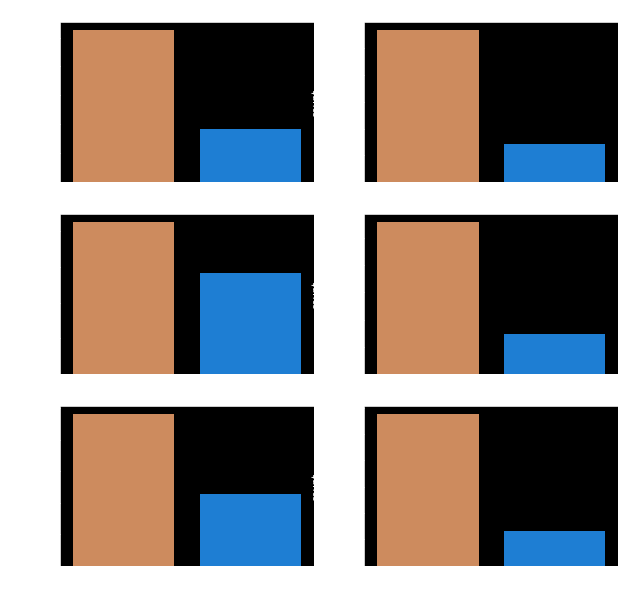
Polarity

Correlation between emotions extracted from emojis v/s Polarity of the tweet
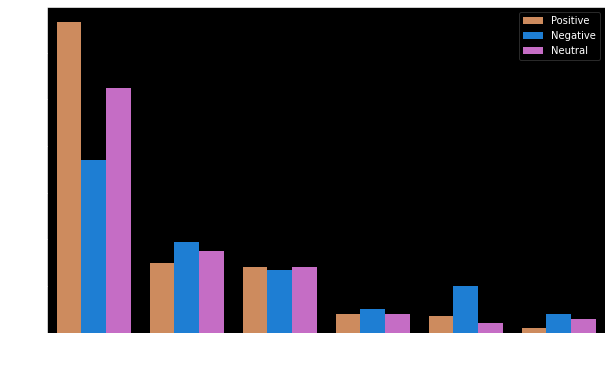
References
2. https://pandas.pydata.org/pandas-docs/stable/reference/api/pandas.DataFrame.drop_duplicates.html
3. https://www.geeksforgeeks.org/handling-oserror-exception-in-python/
4. https://pandas.pydata.org/pandas-docs/stable/reference/api/pandas.tseries.offsets.DateOffset.html
5. https://stackoverflow.com/questions/43146528/how-to-extract-all-the-emojis-from-text
6. https://emojis.wiki/
7. https://stackoverflow.com/questions/43145199/create-wordcloud-from-dictionary-values
8. https://textblob.readthedocs.io/en/dev/quickstart.html#sentiment-analysis
9. http://sentiment.nrc.ca/lexicons-for-research/
10. https://seaborn.pydata.org/generated/seaborn.pairplot.html
11. https://stackoverflow.com/questions/9897345/pickle-alternatives
Thank You